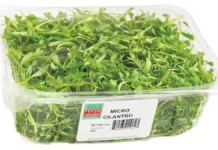
Article contributed by Robert L. Sacks, Ellenoff Grossman & Schole LLP
Federal antitrust laws, which includes the Sherman Act, Clayton Act and the Federal Trade Commission Act, are sometimes described as being highly mysterious and shrouded in technical, economic terms. In truth, they are simply the legal embodiment of economic theories of how free markets should function. First enacted in 1890, they were initially intended to address businesses engaging in anticompetitive behavior by raising prices to restrict competition. Therefore, from the beginning, practices that affect price have been subject to the most rigorous antitrust scrutiny because price is considered to be the very life blood of competition.
It is important that potential members of a joint venture or a group of competitors (such as hotel or restaurant trade associations) determine if their plan subjects them to potential governmental scrutiny. Federal and state enforcement agencies are armed with powerful civil and criminal remedies intended to punish and discourage violations. At the federal level, the primary agencies responsible for enforcement are the Department of Justice (“DOJ”) and the Federal Trade Commission (“FTC”). At the state level, attorneys general enforce state law equivalents. Moreover, enforcement is additionally supported by the ability of private parties to bring their own lawsuits for violations.
Conversely, courts and economists have long recognized that lawful collaboration among competitors can benefit the parties and society at large. By combining resources, competitors can complement each other in the market place, spur innovation and bring new product and service enhancements to bear which can increase competition and reduce costs to consumers. To assist potential collaborators, federal agencies have published guidelines intended to guide businesses in the best practices for structuring and operating collaborative activities to ensure that the pro-competitive benefits are realized and that safeguards are in place to avoid any potential anticompetitive results.
Of course, the parties can (and should) conduct their own analysis with legal counsel including consulting the published guidance referred to above. But more specific advice may also be available.
Businesses may request a Business Review Letter (“BRL”) from the Antitrust Division of the DOJ under the DOJ’s BRL procedures. The BRL procedure permits the DOJ to analyze and comment on the possible competitive impact of specific proposed activities thus possibly avoiding lawsuits or other enforcement actions under the Sherman Act (actions by other federal agencies and by state enforcement agencies are not implicated in the DOJ’s analysis).
The FTC offers a similar service under its Staff Advisory Opinion procedure. Because the FTC tends to concentrate on the impact on consumers while the DOJ’s focuses more on the overall impact on competition within the relevant market, the balance of this article discusses the broader DOJ BRL Procedure.
The BRL procedure is only available for “proposed” business activities – once activities have commenced, the procedure is unavailable.
The BRL request must be in writing describing the parties and structure, details of the proposed activities and may include a description of the relevant market in which the activities will occur, identification of major competitors, ease of access to the market, safeguards to prevent unlawful activities and must include any documents and other information as requested by DOJ in the review process.
After review, DOJ may state that it “does not presently intend to bring an enforcement action against the proposed conduct”; DOJ may decline to state its intentions, or DOJ may state that if conducted, it will sue to stop the business activity. A statement of “no present intention to sue” is only effective as of the date of the BRL and will not bind the DOJ if facts change or if the agency believes enforcement is in the public’s interest. However, DOJ has emphasized that once it states an intention not to bring suit, it has never subsequently brought a criminal action.
The BRL procedure has been flexible and responsive to changing conditions. Recently, DOJ adopted an expedited procedure specifically for COVID-19 related activities. As an example of its beneficial use, in April 2020 DOJ approved the collaborative efforts of several major medical suppliers and pharmaceutical companies to expedite and increase the manufacturing, sourcing and distribution of personal protective equipment and coronavirus treatment related medication as part of an emergency response lead by FEMA and the US Department of Health and Human Services.
Collaboration among competitors entails both opportunity for broad based benefits and risk of crossing the line into unlawful anticompetitive activities. As a sound business practice, contemplated collaborative activities among competitors should be examined in advance for potential exposure to enforcement action under both federal and state antitrust laws. At the federal level, the DOJ’s BRL process is available as an aid to businesses in gauging the level of antitrust risk in specific collaboration activities.
This article is intended as a general discussion for information purposes only and is not intended and should not be relied upon as legal advice for any specific factual situation. Readers are advised to consult with legal counsel and other professionals for advice about specific situations about which they have questions.
 Robert L. Sacks is a Partner at Ellenoff Grossman & Schole LLP, and practices in the firm’s Labor and Employment Practice Group and in all phases of labor and employment on behalf of management, ERISA, principally as applied to multiple and multi-employer plans, trade association law and antitrust. Robert L. Sacks can be reached at RSacks@egsllp.com or via phone at 212-370-1300.
Robert L. Sacks is a Partner at Ellenoff Grossman & Schole LLP, and practices in the firm’s Labor and Employment Practice Group and in all phases of labor and employment on behalf of management, ERISA, principally as applied to multiple and multi-employer plans, trade association law and antitrust. Robert L. Sacks can be reached at RSacks@egsllp.com or via phone at 212-370-1300.























